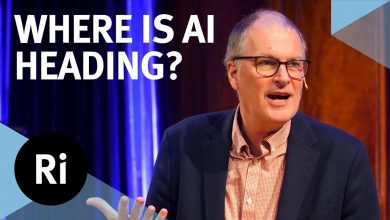 In this thought-provoking video, Peter Diamandis discusses the shocking truth about AI, immortality, civil war, Elon Musk, and simulation theory.
In this thought-provoking video, Peter Diamandis discusses the shocking truth about AI, immortality, civil war, Elon Musk, and simulation theory.
He explores the potential impact of these concepts on our future and challenges us to think critically about the direction technology is heading.
Diamandis, a renowned futurist and entrepreneur and the founder of the XPRIZE Foundation and Singularity University, delves into the world of artificial intelligence and its potential implications.
He highlights the rapid advancements in AI technology and the potential benefits it can bring to various industries. However, he also raises concerns about the ethical implications and the potential loss of jobs due to automation.
Beyond Human: The Quest for Immortality
One of the most intriguing topics discussed is the human quest for immortality. Diamandis explores the advancements in biotechnology and how they could potentially lead to increased human lifespan.
Diamandis envisions a future where AI technologies, such as advanced machine learning algorithms and neural networks, will enable us to understand and manipulate the human body at a level never before possible.
He believes that AI will help us unlock the secrets of aging, develop personalized medicine, and enhance our cognitive abilities.
Furthermore, Diamandis argues that AI can assist in the creation of digital consciousness or mind uploading, where our thoughts, memories, and personalities can be transferred into a digital format. This would allow us to achieve a form of immortality by existing as digital entities, free from the constraints of our physical bodies.
The potential benefits of AI in the pursuit of immortality are vast. By leveraging AI technologies, scientists and researchers could accelerate the discovery of new treatments and interventions that slow down or reverse the aging process. AI algorithms could analyze vast amounts of genomic and proteomic data to identify patterns and develop personalized anti-aging therapies.
Additionally, AI-powered robotic systems could perform complex surgeries with unparalleled precision, reducing the risks associated with invasive procedures. AI could also enhance our cognitive abilities by augmenting our brains with neural implants or providing personalized learning experiences tailored to our individual needs.
While the potential benefits of AI in the quest for immortality are exciting, there are also significant ethical considerations and challenges that need to be addressed. One of the primary concerns is the potential for creating a digital divide, where only a select few have access to life-extending technologies, creating a significant disparity between the wealthy and the rest of society.
There are also questions surrounding the preservation of personal identity and the potential loss of human connection in a world dominated by digital consciousness. Furthermore, the ethical implications of mind uploading and the potential risks associated with transferring our consciousness into a digital realm need to be carefully examined.
Conclusion
Peter Diamandis’ views on the role of AI in the human quest for immortality highlight the immense potential of AI technologies in revolutionizing healthcare and extending human lifespan. While there are ethical considerations and challenges that need to be addressed, the possibilities offered by AI in the pursuit of eternal life are both exciting and thought-provoking.
As technology continues to advance, it is crucial to have ongoing discussions and debates to ensure that the development and implementation of AI align with our values and aspirations as a society.




